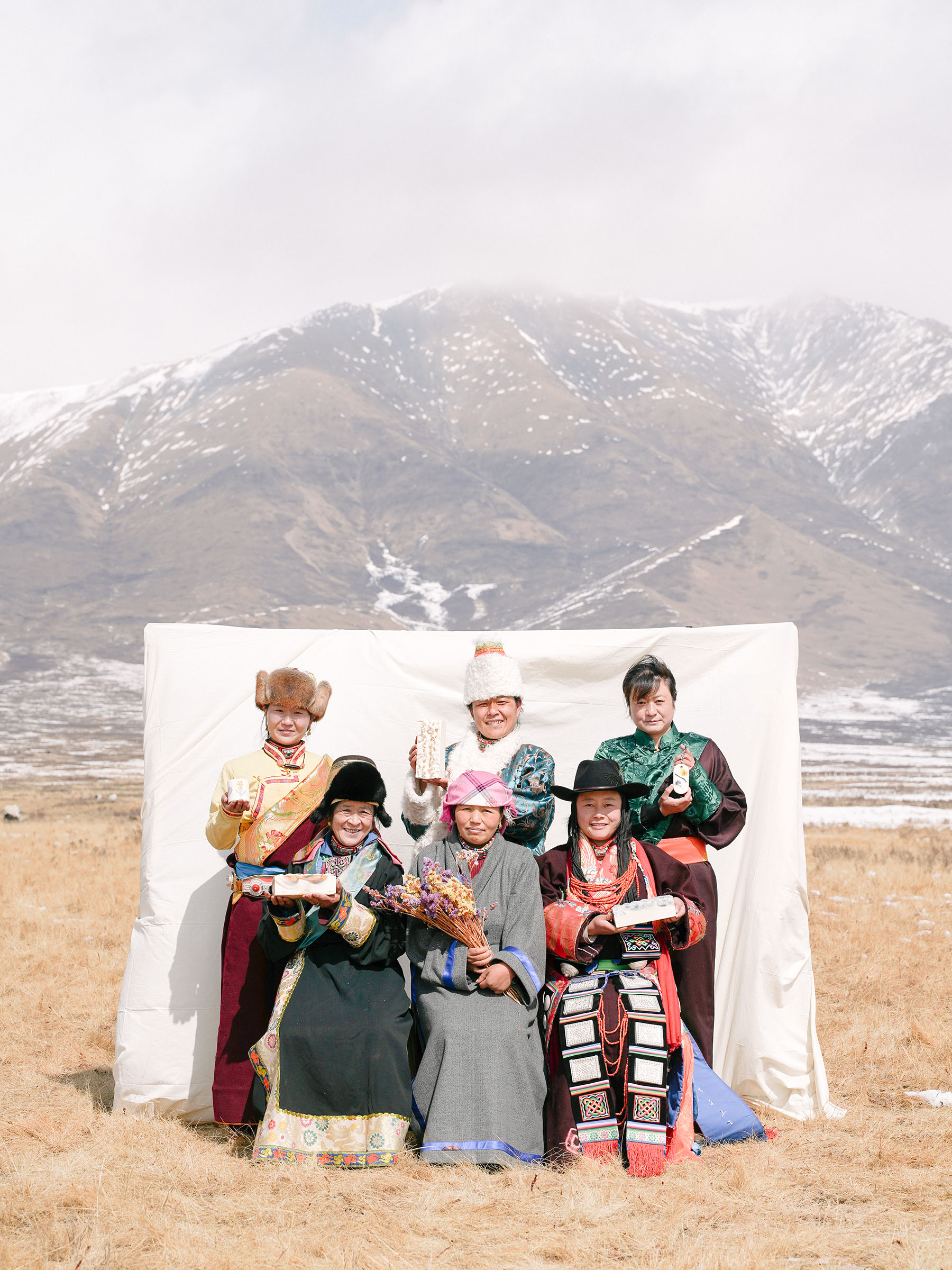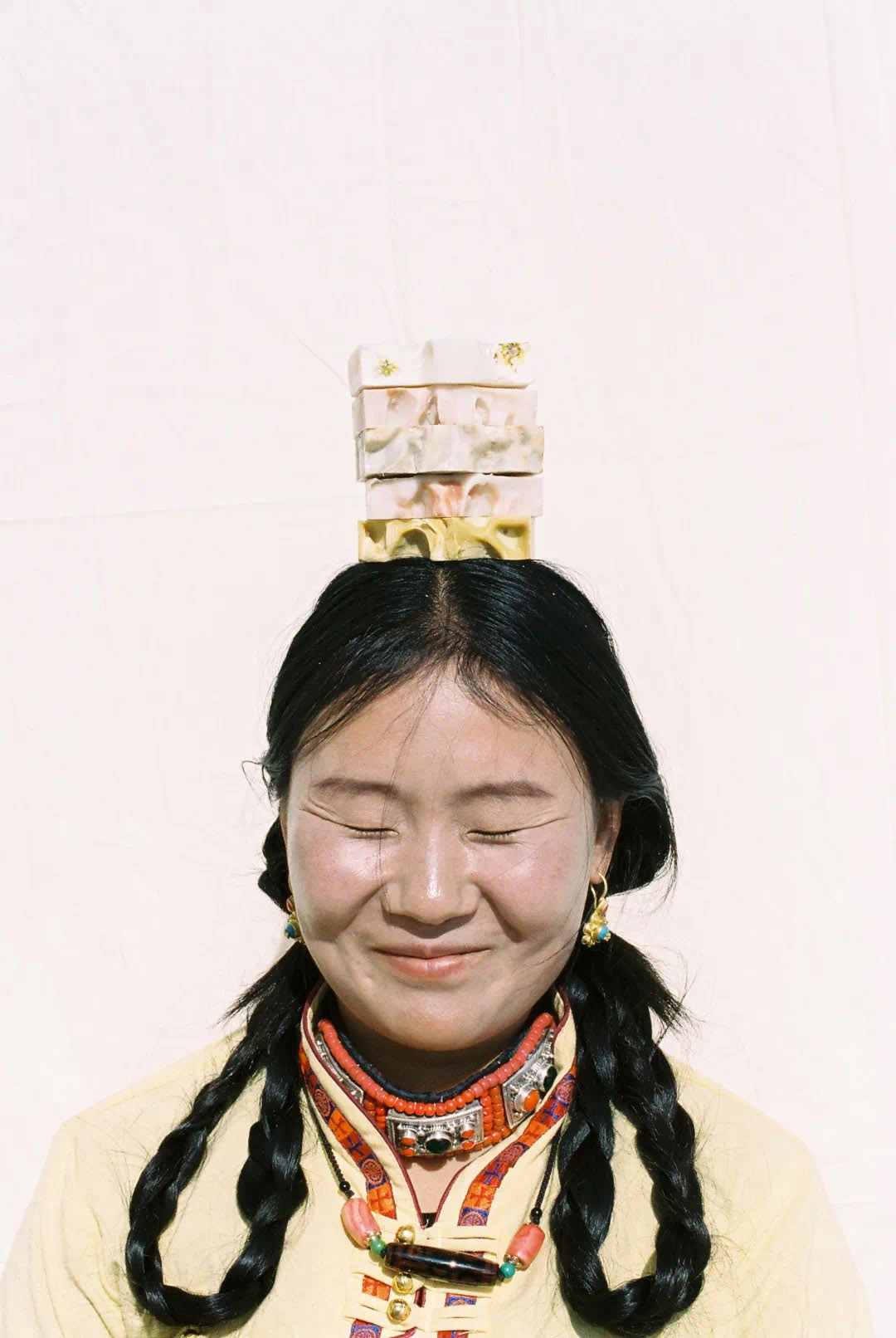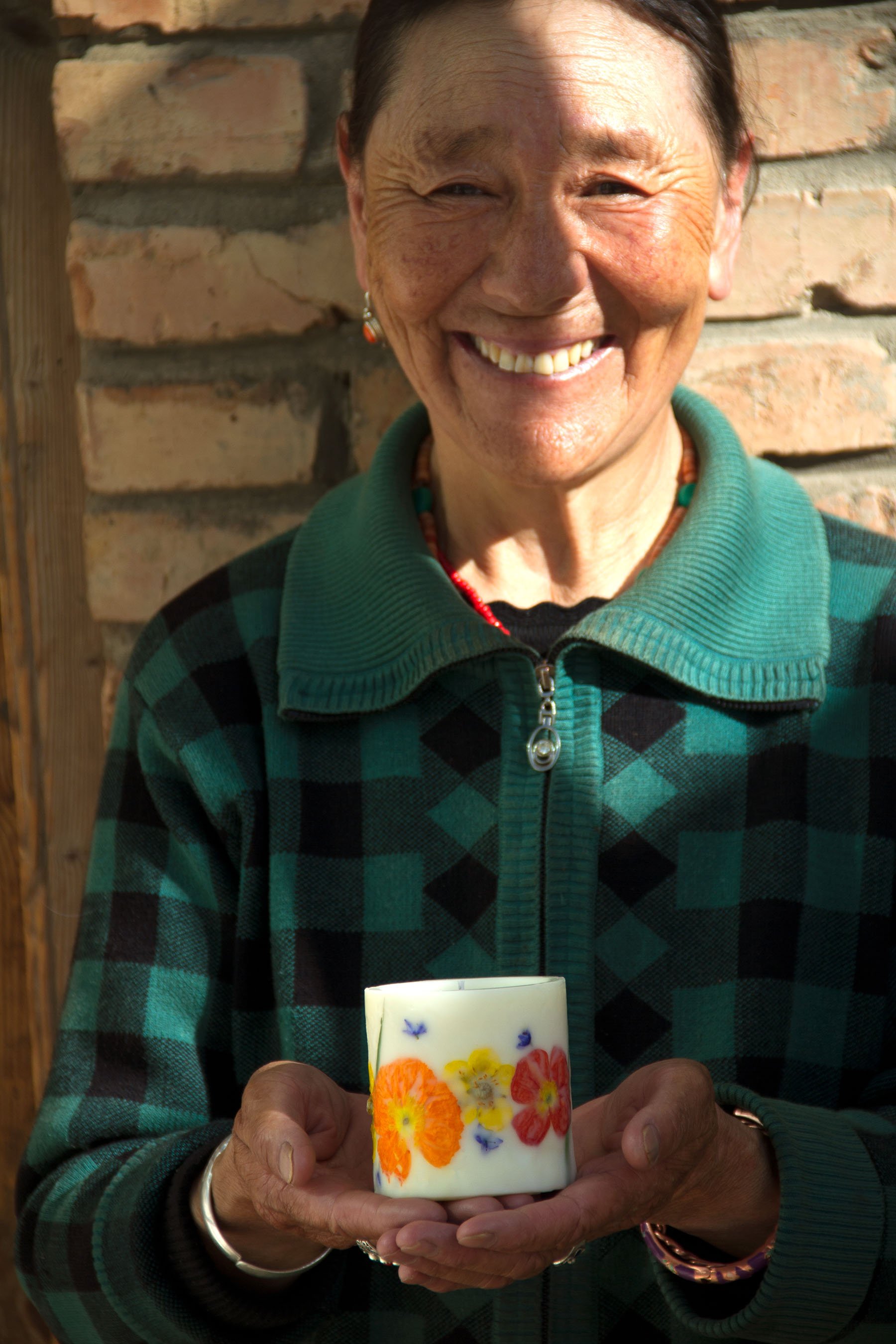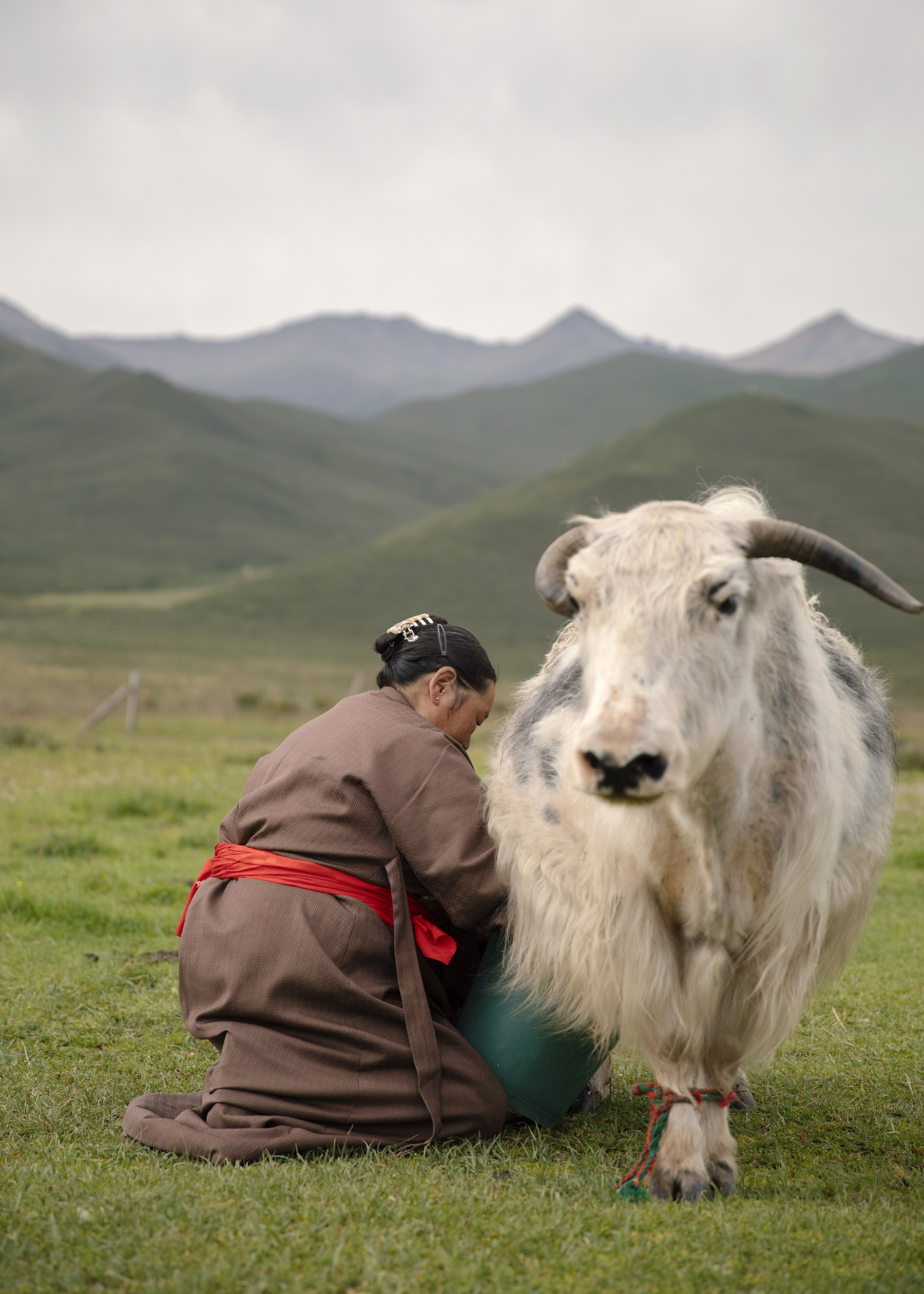Utilizing yak milk and other local elements, Tibetan soap-maker builds a brand, empowers women, and vitalizes rural economy, Yang Feiyue reports.

In the vast, open grasslands of Tianzhu Tibetan autonomous county, where the air is crisp and the horizon stretches endlessly, white yaks roam like billowing clouds across the plateau.
For Danmaji Niu, born and raised in the area, these majestic creatures, unique to this region, are not just a symbol of her hometown but a source of inspiration and the foundation of her natural soap enterprise Yakma Body Care.
In a small workshop nestled in the county, Northwest China's Gansu province, several Tibetan women have been transforming raw natural ingredients into exquisite bars of yak milk soap for the past nine years.
READ MORE: Agricultural challenges to be addressed
Their hands move gracefully as they measure, mix, and mold, based on their expertise and artistic imagination.
"It starts by meticulously calculating and measuring the ingredients, including pure, fatty yak milk, food-grade coconut oil, and other natural ingredients, ensuring a perfect balance for each batch," says Niu, in her 30s.
After the milk is gently stirred in with the oils, the mixture undergoes saponification, during which those women carefully monitor the mixture, occasionally stirring with steady hands to ensure even consistency.
As the mixture reaches the perfect texture, it is then modeled by hand into a variety of shapes, ranging from mountain peaks or flowers, which are all reflections of these craftswomen's inspirations from the natural surroundings.
"Our yak milk is rich in fat, making the soaps incredibly moisturizing and smooth. We have developed an expanding group of loyal consumers who value quality, sustainability, and natural ingredients," Niu says.

To better meet market needs, Niu has developed five product lines with a partner and uses distinctive local ingredients, such as Himalayan pink salt for antibacterial properties.
"My ultimate goal all along has been to create a sustainable business that not only brings the best of my hometown to the world, but also empowers our community and preserves its heritage," explains Niu.
Niu grew up surrounded by the rhythms of pastoral life. Her childhood was shaped by the slow, deliberate pace of the grasslands, where herding yaks and gathering around the hearth for yak milk tea were daily rituals.
Her grandmother used to encourage her to "study hard and one day leave these snow-capped mountains to see the world".
Buoyed by this encouragement, Niu worked harder than her peers and stood out in class.
In 2008, she initiated a water supply project in Tianzhu after finishing a project design and development program at Qinghai Normal University in neighboring Qinghai province.
"Winters in my hometown were harsh, with water sources freezing and people struggling to access water for themselves and their livestock," Niu says, adding that women had to spend hours fetching water from distant springs.
She proposed a project to install pipes that would bring water directly from the springs to each household, benefiting 60 families and a primary school.
However, securing funds wasn't easy.
"I was only 19 at the time, and many people doubted I could pull it off. My parents were especially worried, fearing I was making false promises that would reflect poorly on our family," she recalls.

But with the support of her teachers, she wrote a grant proposal that was eventually funded by East China Normal University in Shanghai.
Ultimately, the project panned out and has immensely benefited her community.
The success of the project brought Niu a great sense of achievement and planted in her seeds of desire for community work.
Niu subsequently launched several other community-based initiatives, including a solar energy program and village women's health projects for medical education and checkups.
In 2012, Niu received an opportunity to study in Australia. This marked a turning point in her life.
"When I first arrived in Australia, I stayed with an elderly couple who owned a large ranch," Niu says.
"Helping them tend to their cattle on weekends felt like being back home in Tianzhu. But what struck me most was how Australians valued organic, natural products. It made me realize that my hometown, with its pristine environment and traditional way of life, was already living in an environmentally responsible way," she says.
After finishing her studies, she came back to Tianzhu and established Yakma in 2016 with co-founder Tashigar, with a vision to produce all-natural skincare products using yak milk and local herbs.
Starting with just three women from her community, the business has since grown to employ over a dozen local women, many of whom are over 40 years old.
These women, once confined to traditional roles, now earn a steady, stable income, working five to six hours a day.
One of Niu's proudest achievements has been the positive effect on the lives of the Tibetan women who work in the workshop.
"Many of them were initially shy and unsure of themselves," she admits.
"But through their work, they've gained confidence and creativity. Some even suggest new ideas, like incorporating more local elements into our designs."
Duoyang, who joined Yakma more than five years ago, says it feels great to get recognition from people around her.
"I never had a chance to share my ideas before, but here I have been able to show my initiative and creativity," says the woman in her 30s.

Caogaji, in her 40s, has been in charge of making soap packages for several years at Yakma. "I have time on my hands and I'd like to help bring in extra money for my family," she explains the reasons behind her joining in.
"Plus, I now have a fulfilling life because of the project," she adds.
To date, Yakma products have gained recognition in China. Over the past year, the brand has seen a 40-percent growth in sales, driven by increasing demand for safe, natural and sustainable products.
"Consumers today care deeply about quality, health, and the environment," Niu notes.
"They want to know the ingredients and how they benefit their skin. This aligns perfectly with our mission," she says.
ALSO READ: Cultural heritage weaves global success for Chinese fashion
Niu says she and the team will integrate more Tibetan cultural elements into Yakma products, and find more connection points between traditional cultures and modern consumer needs.
For Niu, Yakma is more than a business: It's a bridge between urban and rural China.
"Many people think rural areas are backward, but I believe they hold untapped potential," she says.
"We need to return to our roots and discover the treasures hidden in our hometowns."
Niu's advice for young entrepreneurs from rural areas is to "start with what your hometown has to offer, understand its resources and culture, and then find a way to connect them to the market".
Contact the writer at yangfeiyue@chinadaily.com.cn


